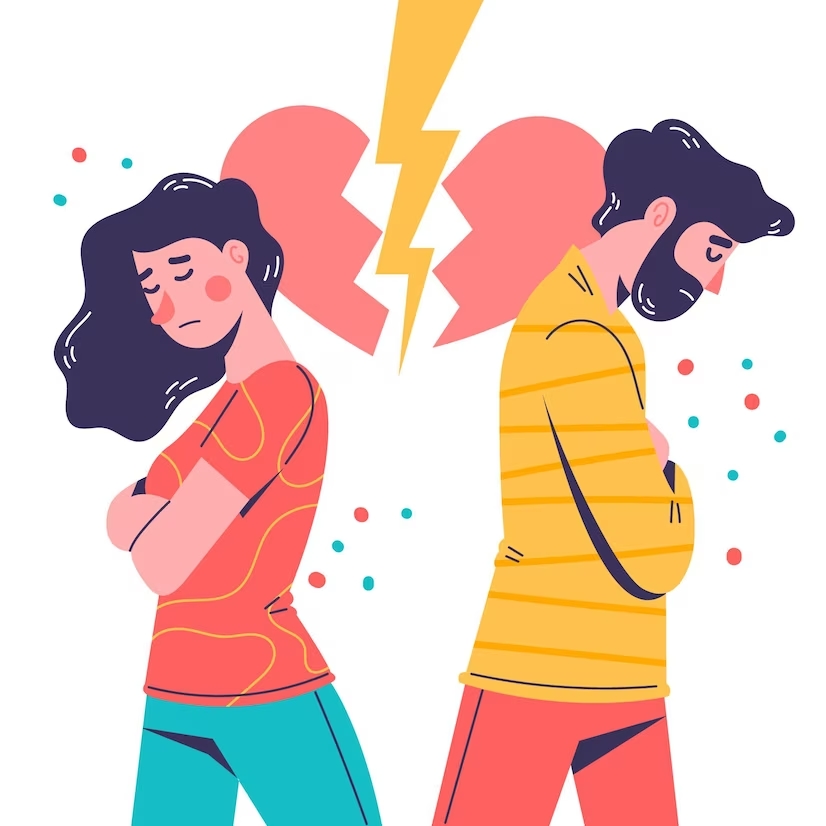
dating Anxiety: What You Need to Know
Dating anxiety, also known as relationship anxiety or dating-related anxiety, refers to the feelings of unease, apprehension, and nervousness that people may experience in the context of dating and romantic relationships. It can manifest in various ways and at different stages of dating, from the initial stages of meeting someone new to more established relationships. Dating anxiety can arise from various sources, including fear of rejection, uncertainty about the future of the relationship, concerns about compatibility, and worries about being judged or not measuring up to expectations.
Is it normal to have dating anxiety?
Yes, it is entirely normal to experience dating anxiety to some degree, especially when forming new romantic connections. Meeting new people, navigating uncertainties, and dealing with the fear of rejection are common triggers for Relationship Anxiety. It’s a natural response to a situation that involves vulnerability and emotional investment. The key is to recognize when dating anxiety becomes overwhelming or interferes with your ability to enjoy dating and maintain healthy relationships.
What Are the Signs of Dating Anxiety?
Experiencing dating anxiety? “Online counselling” can provide the guidance and support you need to overcome it.
- Excessive Worry: Constantly worrying about the status of the relationship, how the other person feels about you, or whether the relationship will last.
- Overanalyzing: Overthinking interactions, messages, or conversations with the person you’re dating, searching for hidden meanings or signs of their interest or disinterest.
- Physical Symptoms: Experiencing physical manifestations of anxiety, such as an increased heart rate, sweating, trembling, or gastrointestinal discomfort before or during dates.
- Avoidance Behavior: Avoiding dating or social situations altogether because of fear of rejection, anxiety about the potential outcome, or concerns about what others may think.
- Negative Self-Talk: Engaging in negative self-talk, self-criticism, or doubting one’s worthiness of love or a successful relationship.
- Need for Reassurance: Frequently seeking reassurance from friends, family, or the person you’re dating to ease feelings of anxiety or insecurity.
- Comparisons: Constantly comparing yourself to others or to idealized notions of what a relationship should be, leading to feelings of inadequacy.
- Procrastination: Procrastinating on dating-related tasks or avoiding making decisions about the relationship due to fear or indecisiveness.
- Physical Aversions: Feeling physically ill or uncomfortable when faced with dating situations, such as going on a date or engaging in romantic activities.
- Self-Sabotage: Engaging in behaviors that undermine the relationship or push the other person away as a way of protecting oneself from potential rejection or hurt.
Feeling anxious about dating? An “Online counsellor” can provide the support and guidance you need to navigate through it.
What Are the Causes of Dating Anxiety?
Dating anxiety can have various causes and triggers, and it often results from a combination of factors. Some common causes of dating anxiety include:
- Fear of Rejection: A significant driver of Relationship Anxiety is the fear of being rejected or not being liked by the person you’re interested in. The prospect of rejection can be emotionally distressing and lead to anxiety.
- Low Self-Esteem: Individuals with low self-esteem may doubt their own worthiness of love or a successful relationship, contributing to Romantic Anxiety.
- Past Negative Experiences: Previous dating or relationship experiences, particularly if they ended poorly or involved rejection, can leave emotional scars and increase anxiety about future dating endeavors.
- Social Pressure: Societal and peer pressures to meet certain dating or relationship standards can create anxiety, especially when feeling the need to measure up to others’ expectations.
- Perfectionism: Striving for perfection in dating or seeking an idealized relationship can lead to anxiety. The fear of not living up to one’s own or others’ high standards can be overwhelming.
- Lack of Control: The uncertainty and lack of control in dating situations can be anxiety-inducing. People often worry about the outcomes of their actions and how the other person will respond.
- Attachment Style: One’s attachment style, influenced by early experiences with caregivers, can impact how one approaches dating and relationships. Insecure attachment styles, such as anxious or avoidant, may contribute to Love Anxiety.
- Negative Self-Talk: Engaging in negative self-talk, self-criticism, or catastrophic thinking can heighten Romantic Anxiety by reinforcing self-doubt and insecurity.
- Social Anxiety: Individuals with social anxiety disorder may experience intense anxiety in social situations, including dating, due to a fear of judgment or embarrassment.
- Cultural and Societal Factors: Cultural norms and societal expectations about dating, relationships, and gender roles can contribute to anxiety if they conflict with personal values or beliefs.
conclusion
It’s important to recognize that dating anxiety is a common experience, and many people face similar concerns and fears when dating. Identifying the specific causes and triggers of your dating anxiety can be the first step toward managing it effectively and enjoying more positive dating experiences.



